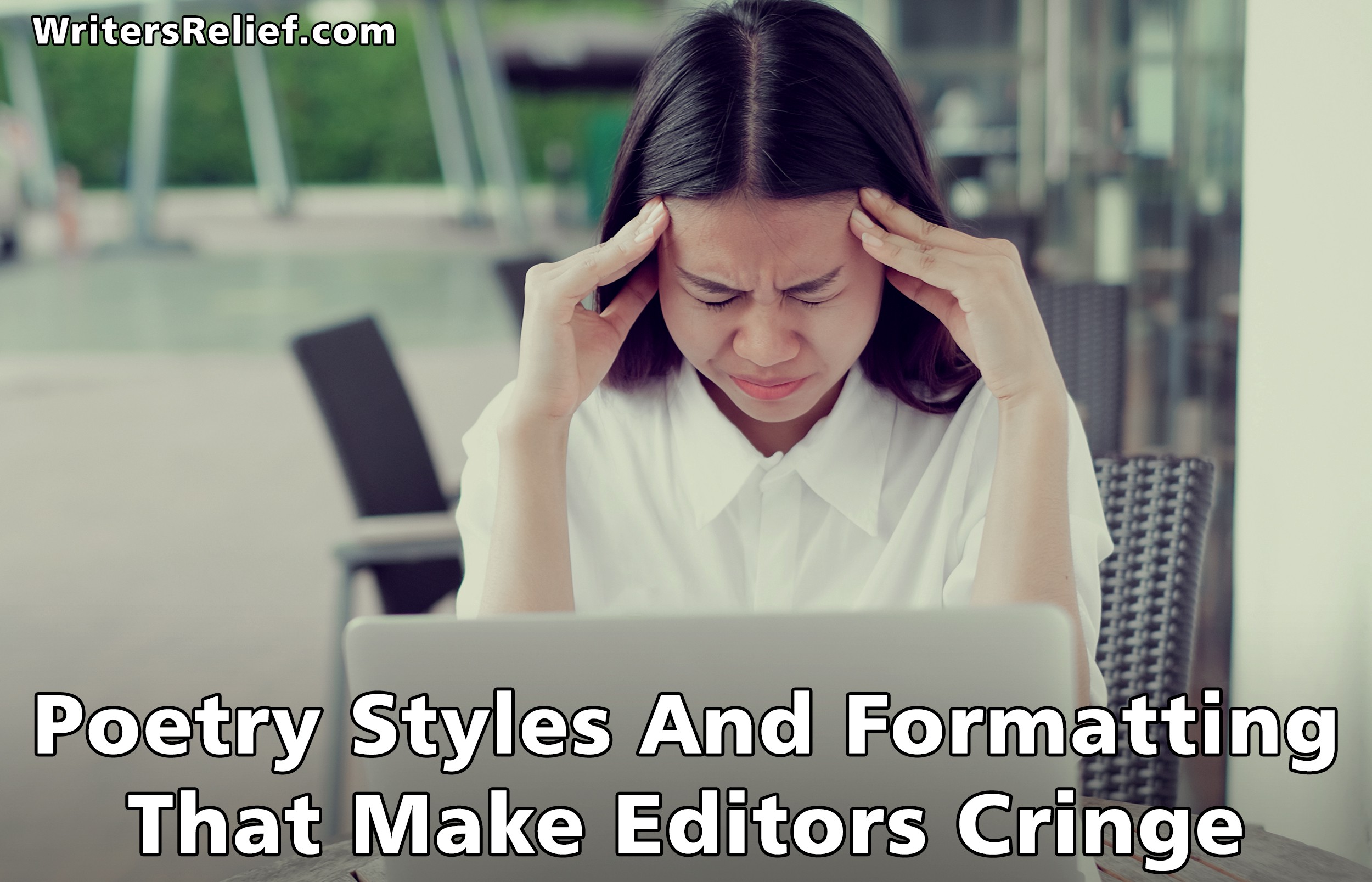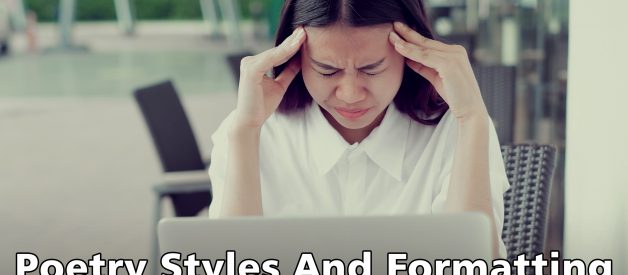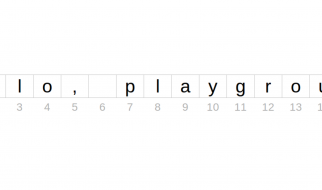
Some poetry formatting choices don?t resonate well with editors of literary journals. If you?re hoping to get your poems published in literary magazines, consider these tips before sending out your submissions.
Poetry Turnoffs To Avoid When Making Submissions
Rhyming Poetry And Contemporary Publishing. As disappointing as the news may be for some poets, very few literary journals are accepting rhyming poems or formal verse poems. From the lack of popular interest in rhyming poetry, it seems that many modern readers have come to regard rhyme as naive, outdated, and contrived. Literary editors of well-known journals are simply not banging down poets? doors to publish rhyming poetry.
However, there are some editors who love and publish rhyme. Poets who excel in traditional verse may well find an outlet in literary journals; however, the writing must be exceptional in order to overcome the apparent editorial disinterest in rhyme.
Poetry Format: Double-Spaced Lines. One of the telltale signs that a writer is new to the craft is unnecessary double-spacing of free verse or rhyming poems. Many double-spaced poems can easily become single-spaced poems without doing significant damage. The new writer may feel uncomfortable changing from double spaces to single spaces, but if you leaf through the pages of a literary magazine, you?ll find that most poems are single-spaced.
That said, some poems simply must be double-spaced. The writer selects double-spacing because that format supports the meaning of the poem in some way. You can double-space your poems; just be sure you?re doing it deliberately, with sensitivity and awareness. If you can remove the double spacing without doing damage to the poem, it might be a good idea to do so. The format change will also help you keep the page count down.
Poetry Format: Centering Lines. There is a perception among some newer poets that centering the text of a poem somehow makes it look and feel more poetic. But editors have been known to be dismissive of centered poems.
If your poem can be left justified without doing damage to the meaning of the poem, you may want to consider ditching the center justification if it helps your work get published in a well-known literary journal.
As with spacing, if there is a reason other than ?it looks nice? that your poem must be centered, then by all means, stick to your guns. Hopefully, you?ll be able to connect with an editor who understands your work and will not dismiss your poem simply because of the center justification.
The Best Length For Poems. As the page count of your poems goes up, the chances of your seeing them published go down. One-page poems have the best shot at being placed.
For more writing tips and advice visit WritersRelief.com.


